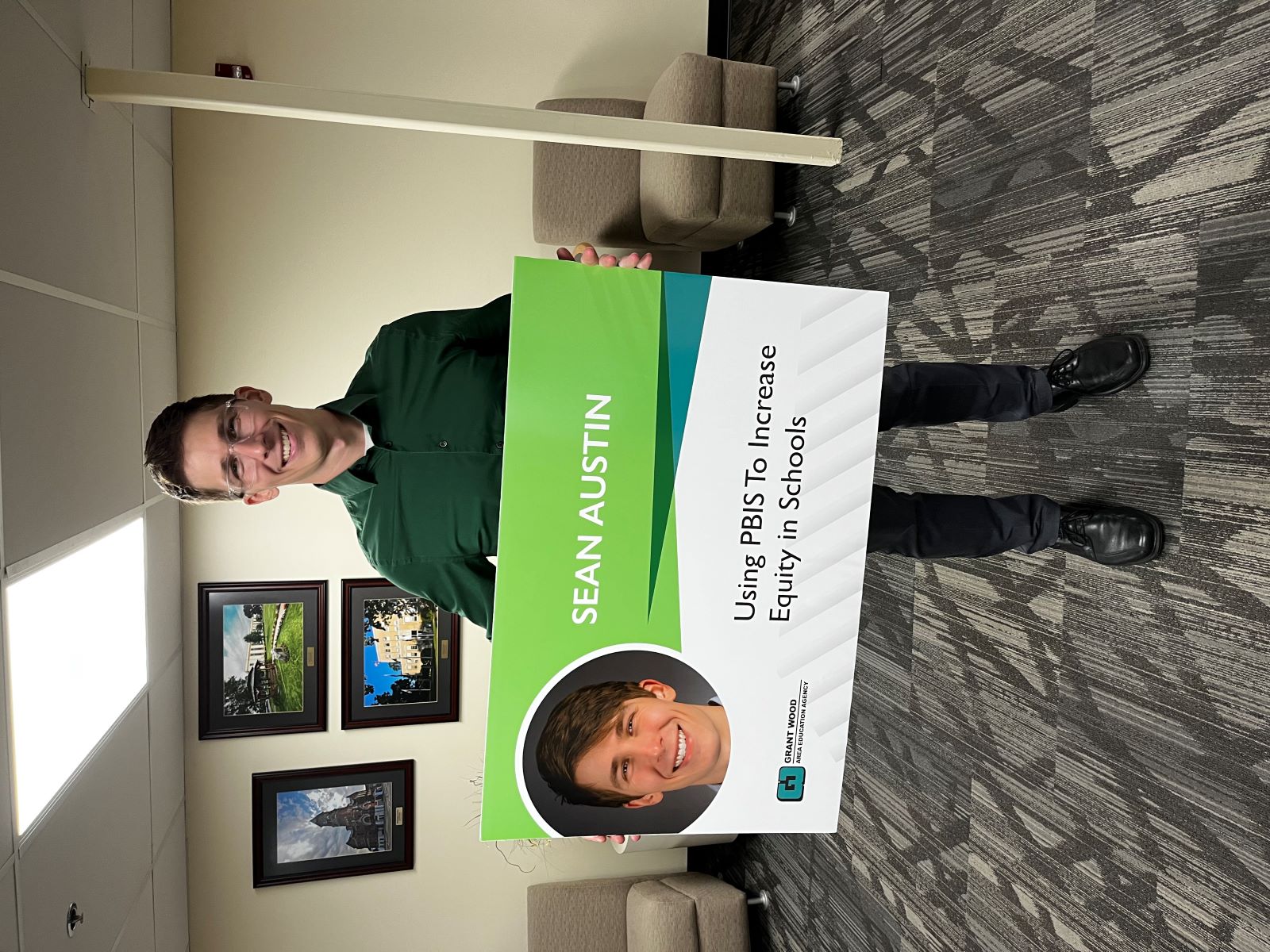A Rewarding Path to Research
A Rewarding Path to Research

While working as a substance abuse counselor at an outpatient clinic in Davenport, Iowa, Sean Austin (’12, MAE; ‘14, EdS) noticed a troubling pattern.
“I was observing so many people, even in the short time I was there, coming through treatment and then returning again shortly thereafter after encountering further issues related to substances,” he explains.
As someone whose job was to help those individuals, Austin felt he was either falling short or the system was.
This recurring issue inspired Austin to seek a deeper understanding. He had primarily been working with adults. Many of the conversations he had about their substance use history (which research supports) revealed that those with the most chronic addictions often started using substances early, often in middle school.
Austin decided he needed to work in the school system to address the problem at its roots and help young people avoid that trajectory.
In 2011, he enrolled in UNI’s school psychology graduate program in the College of Education, in part because of the generous graduate assistantship support he received.
Austin started his studies around the same time Nicki Skaar, the school psychology program coordinator, began reworking the curriculum to make it more relevant, specifically in helping students learn how to impact not just individuals but entire systems, like school districts. Austin particularly pointed to Skaar’s systems course as instrumental in giving him a framework for reaching broader student populations.
It set me up well for the rest of my career — the way they trained me to teach, the standard of professionalism they upheld — and helped me solidify who I wanted to be as a practitioner. I’ve tried to carry that through with my work as a researcher as well.
A turn to research
After earning his graduate degrees, Austin worked as a school psychologist with Heartland AEA for five years before starting his doctorate in special education at the University of Oregon. Upon graduating four years later, he was immediately hired as a research associate in the university’s Educational and Community Supports research unit in the College of Education.
“I’m getting to work on the cutting edge of research on the problems of practice that I observed as a substance abuse counselor and a school psychologist,” Austin says. “I have the opportunity to follow the ideas that I have and test them.”
One recent project focused on reducing the use of exclusionary discipline in schools — an important yet often overlooked aspect of education, Austin shared. The project aimed to uncover ways to keep more students in school and better equipped to handle adversity.
For Austin, the work he’s doing at the University of Oregon is a full-circle moment. He’s now collaborating with renowned Sean Austin ’12, MAE; ‘14, EdS “It set me up well for the rest of my career — the way they trained me to teach, the standard of professionalism they upheld — and helped me solidify who I wanted to be as a practitioner. I’ve tried to carry that through with my work as a researcher as well.” researchers in the field, including some he cited during his studies at UNI.
“It’s really rewarding to be on the other side of it,” he says. “I didn’t realize I was going to do research, even going into my PhD, but I realized this was the right fit for me because I was going to school every time I saw a problem that needed to be solved.”
Austin credits his time at UNI, particularly his work with Skaar, as foundational in shaping his understanding of how society and systems function.
“The combination of coursework and in-field experience I got at UNI gave me a lot of confidence going into my initial interviews for school psych jobs,” he says. “It set me up well for the rest of my career — the way they trained me to teach, the standard of professionalism they upheld — and helped me solidify who I wanted to be as a practitioner. I’ve tried to carry that through with my work as a researcher as well.”




